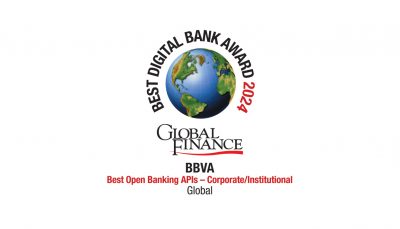The banking sector is undergoing an unprecedented transformation. Most companies are transitioning from a face-to-face approach, in which bank branches play a pivotal role, to a digital approach, in which every transaction can be done on a smartphone or computer, without having to physically go to a branch.
Open banking is accelerating the implementation of banking features on third-party platforms, and APIs are, to a large extent, responsible for this process. They are the perfect tool for any company to create solutions that offer banking services and products from its own environments to its own customers, all without leaving the company’s own application or system.
APIs as a method for integrating bank details
Application Programming Interfaces (better known as APIs) are libraries that allow two applications to connect so they can exchange messages or data. They provide a set of technical procedures containing all the specifications for a developer external to the banking business to establish communications between two applications. And although they are not novel elements, at least not for most programmers, the fact is that APIs are helping cement a new way to bank.
The approval of the PSD2 Directive (Second Payment Services Directive) at the European level, endorsed by the European Banking Authority to deregulate the financial sector and already partially transposed into Spanish law through Royal Decree 736/2019, has accelerated the process of opening up the banking infrastructure to third parties.
Since then, any vendor can use the features provided by APIs to offer their customers applications they can use to carry out all types of transactions securely, quickly, efficiently and without having to leave their own environment. This allows, for example, a company application to perform the same transactions that could be carried out from a banking application, such as opening a bank account, making payments and transfers, checking balances and much more.
And to do it all without compromising the privacy of the data at any point in the process. The PSD2 Directive guarantees the security and integrity of banking data, since it only allows applications to use the banking infrastructure and information with the prior consent of the customer. It further requires vendors to implement enhanced authentication systems, such as two-factor identification, a type of mechanism designed to reinforce the technical requirements for verifying a user’s identity.
A system for providing banking services to customers and building their loyalty

The potential of APIs is beyond doubt, and their applications are almost infinite. Without question, one of the most important is offering users a complete financial management environment in a fully operational ecosystem, such as a completely independent third-party platform, app or website.
On a technical level, the main advantage for users is obvious: it allows anyone who interacts with a company, be it a customer, vendor or employee, to not have to exit to another application in order to make a payment or check their balance, since the entire operation can be done from a single platform.
For companies, the integration of banking data with their platforms allows them to provide banking services to their customers and built their loyalty, since they can stay in their app much longer. It even lets them attract new users who lacked banking products and who can take this opportunity to apply for them for the first time.
Integrating the creation, management and control of a digital account into a company’s platform can lock in sales opportunities that might have been lost had a customer not had an operational account to complete the transaction. Through a few simple steps, anyone who hasn’t banked online before will be able to open an account, deposit funds and complete the purchase process, and to do all this without going to a bank branch or having to download and open new apps on their mobile phone or computer.
BBVA and Uber: the first app to work on a third-party platform
One example of leveraging this new possibility is the app that BBVA and Uber jointly created in Mexico, an app that is fully integrated with BBVA’s financial services through APIs. In just four steps, a driver can register within the platform and have a fully operational account through their Driver Partner Debit Card.
After doing this, the driver can request the funds owed by Uber for the services provided at the conclusion of the ride, check their balance and do any other transactions, all without having to exit Uber’s own app.
This agreement was beneficial to all the parties involved: BBVA, which gains access to third-party customers and technology platforms; Uber, which gains an incentive to attract drivers to use its platform and to retain its current drivers; and the end customer, who can enjoy a new user experience while receiving the income in real time, all while gaining access to a set of offers and promotions all in one place.
BBVA’s API Accounts
With BBVA’s API Accounts, available at BBVA API_Market, you can let your customers open a bank account and offer them a loyalty rewards card right from your app or platform in minutes, and enable functions as useful and essential as checking balances and transactions and keeping up to date with their financial situation. This way you can build the loyalty of your customers, employees or vendors and offer them a more convenient option to manage their money.
Users will be able to open a low-risk digital account from your own app with just a few clicks, as long as they don’t already have a digital account set up. This way, you can expand your range of services considerably and give yourself an edge over your competition.












